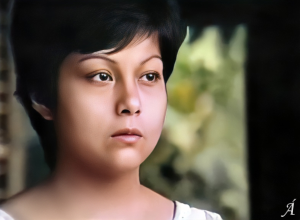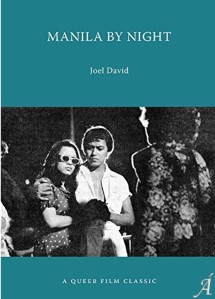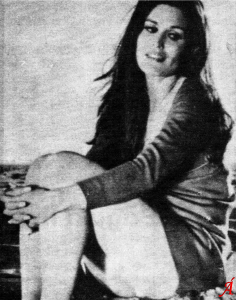Once when I dropped by the place where I finished my undergraduate program (to finalize papers for courses that I taught for free), the staff wanted to confirm if I was indeed the University of the Philippines’ first film-baccalaureate holder. That would have made me the first local film degree-holder in the country and, since there was no record of anyone else, the only one – until of course the next major was graduated, a year later. The day I visited, the program was preparing to commemorate its third decade of existence, and my inclusion in the list was under question because I had no thesis in my name. I explained that I’d wanted to complete a thesis, but since the major at that time was lodged in the then-institute’s communication program, and I’d already completed a previous degree (in journalism), the registrar decided that inasmuch as the film-thesis requirement was then also listed as a communication subject, I’d already fulfilled it via the earlier degree. I experienced a similar frustration when I started my M.A. in Film, then-unavailable in the Philippines so I had to be sent to the US, and discovered that the program I was taking had just abolished the thesis requirement.
11011So before all my records get erased at the very institution responsible for keeping them, here’s the score: I completed two bachelor’s degrees at what is now the national university’s College of Mass Communication [then still an institute], both times while engaged in full-time work (as managing editor at the Philippine Collegian, a post I clinched via competitive exams, during my journalism years; and as head of the writers’ section at the Experimental Cinema of the Philippines [ECP] during the pursuit of my second degree in film), during a period when the bestowal of medals wasn’t as promiscuous as it is today. I wound up zigzagging from a hard-left political and economic specialization in the late ’70s to falling out with the Marxist movement (again before it became more acceptable to do so) and rehabilitating my status as mainstream-media aspirant by opting for cultural commentary. I got invited to join the Manunuri ng Pelikulang Pilipino (Filipino Film Critics Circle), supposedly the youngest member to have ever participated in the group, and have maintained a severe love-hate relationship with my colleagues therein since then. When the Marcos regime decided to showcase cinema as proof of its libertarian credentials, it also turned over the institution it founded to the First Daughter, Imee Marcos, mainly because she had carefully cultivated discursive relations with opposition artists, and I joined its public relations team. The ECP had been hoping to upgrade its workshops to eventually offer academically accreditable programs, but when the University of the Philippines effectively preempted us by announcing the country’s first bachelor’s degree in film, the agency’s officials instructed me to return to my alma mater to take the film courses; I said that with my previous units I’d be able to complete the entire program in two years, so upon convincing them (mainly through the initiative of my supervisor, Guia Yonzon), I effectively became an ECP college scholar – drawing salary on an assignment-submission basis while completing course work, sometimes commuting between school and office from one end to the other of the metropolitan area.
11011A few agency officials mentioned that their only hesitation in approving the arrangement lay in their doubts about the quality of instruction I would get, saying that I might wind up teaching my teachers more than they taught me. The university recognized the singularity of my achievement – as sole first graduate, with an active record of publications – by declaring me Most Outstanding Student system-wide. Unfortunately I had no job to return to, since the 1986 people-power revolt resulted in the dissolution of Marcos-initiated institutions, including the ECP (then renamed the Film Development Council of the Philippines). I attempted a repeat of my freelance experience right after journalism school, but no one in the local film industry believed I was a film graduate precisely because there were no other such degree holders. After the last few projects I worked with folded up due to financial constraints, I returned to journalism, then simultaneously to broadcast journalism (holding both writing jobs full-time for about a year), but both institutions I’d joined similarly folded up. At that point the dean of the about-to-be-upgraded institute invited me to teach – and that’s how I got groomed for an overseas M.A. stint via fellowship, the only means possible. The Institute of International Education decided to reverse the ranking given by the local Fulbright evaluators and placed me on top of the list, which is why I could choose New York University and everyone else had to figure out how to reapportion the sudden and drastic decline in budget available to the rest of the successful applicants.
11011Upon completing the M.A., I was technically disqualified from applying to any other US-government grant for the next two years, just as another complication surfaced: less than a handful of students were accepted to the doctoral program, and I was one of them. My mentor at UP, Ellen J. Paglinauan (recently departed and the only senior faculty worth her salt), who was chair of the film program and soon-to-be-dean of the college, told me to scrounge for whatever funds were available to me in order to stay on and finish the doctorate. Today’s NYU-film PhD students enjoy a stipend and a dissertation grant, but these perks started becoming available only to batches later than ours; all we were assured of then was free tuition, so I worked out a combination of student loans, full-time (in the sense of full-hours’) work, and the sale of a small piece of property I’d been able to acquire before my graduate studies began. These were hardship years that I was fortunate enough to have been prepared for by my experience in coping with the rampaging underdevelopment that marked the presidency of Corazon Aquino – the only instance in his later years when Marcos had issued a warning more or less truthfully. The pain was nevertheless exacerbated by the reality that the US was enjoying what turned out to have been its last few years of fair prosperity; I’d count out coins, including some I picked up on the sidewalk, and sometimes wind up forgoing the cheapest lunch in the area (a slice of pizza) because I’d still be short by a few pennies.
11011The UP program I returned to was just as eager to collect on what it thought was its investment in me. I helped plan and execute a surreptitious strategy to combine the film department and the antagonistic certificate-offering Film Center, and timed the proposal and defense of a local M.A. in Film right when the merger could justify an upgrading of the department into its own institute. No means in sight of repaying my US student loans, I nevertheless had to endure the class-arrogant intellectual mediocrity of the senior professors and their minions, and when I returned from an exchange stint which only sufficed to repay a portion of what I owed, a college officer told me to accept a cut in salary (resulting, believe it or not, in something like 100 US dollars a month after a half year of zero income) since I’d allegedly earned enough to be gorging on clover. For that reason I’ve since aimed to develop a career in alternative systems, those that justly reward best efforts or at least know well enough to stand aside, and as for the national university’s film program … let’s say I’m content to be twisted enough to get along with everyone, including the several self-dramatizing nitwits passing themselves off as faculty (and let’s not even get started with the other media programs), but let’s not let them know I think of them this way, which is why this piece is tucked away in some unheralded portion of the blog.
Incheon, Korea
March 2014













 ORCID ID
ORCID ID 